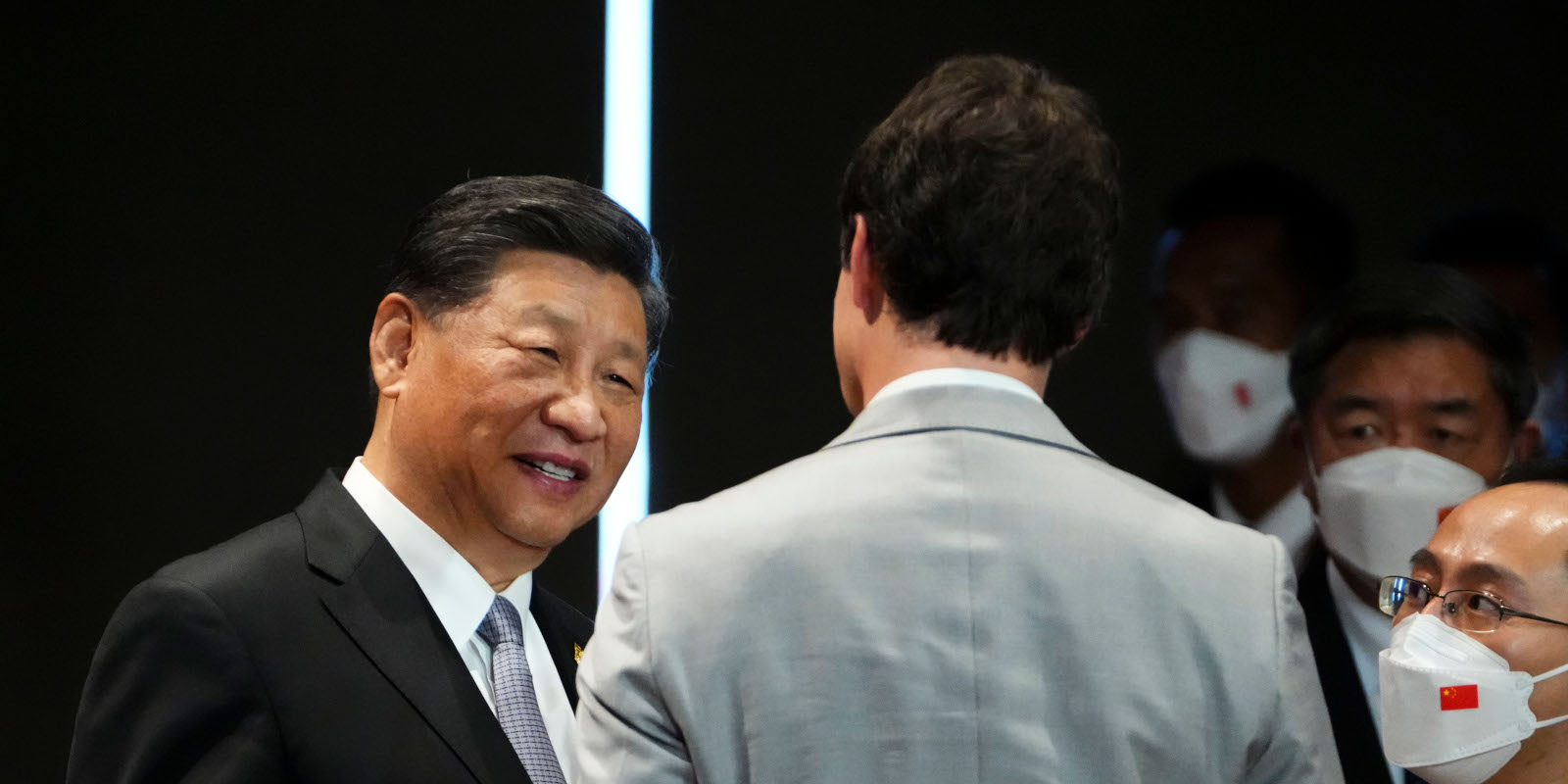At A Glance
- Chief electoral officer Stéphane Perrault said he was aware that election interference and disruption was an “area of risk” before the previous two federal elections in Canada.
- Prime Minister Justin Trudeau continued to insist this week that he has not been briefed about money flowing to election candidates that has allegedly come from the Chinese government.
- Bloc MP Alain Therrien pressed the government for the identities of the eleven candidates alleged to have received funding as part of the Chinese interference network.
In early 2017, Canada’s chief electoral officer Stéphane Perrault took a look south of the border at the aftermath of the raucous election campaign that made Donald Trump president and realized his job had changed.
If Perrault was imagining potential disruptions to a Canadian election before then, it was mainly in the form of natural disasters and policing issues. With social media becoming ubiquitous, it was now possible for state actors to significantly disrupt an election, even with the relatively old-fashioned tactic of sowing confusion about the day of an election and the location of polling stations.
“After that election, I believe in January or February, I did meet with the Privy Council Office, I did reach out to the Communications Security Establishment, to start preparing for our election because I realized that things had changed,” said Perrault on Tuesday.

So when the news broke earlier this month about allegations of an “interference network” developed by the Chinese government to covertly fund election candidates, it didn’t come as a major shock to Perrault and members of Canada’s security community.
“Prior to the 2019 election, and certainly prior to 2021, but in both cases, there was a high level of alertness to this issue amongst the various institutions that have a role to play,” said Perrault, in testimony Tuesday to a House of Commons committee that is studying the issue.
“We were aware that this was an area of risk that there was an interest in certain countries in conducting various forms of disruption or interference in the election,” said Perrault.
Prime Minister Justin Trudeau continued to insist this week that he has not been briefed about money flowing to election candidates, despite reporting from Global News that the prime minister was cautioned in January about an “election interference network” that was active during the 2019 federal election.
In the House of Commons, the Conservative Party and Bloc Quebecois used question period to interrogate the government on the slight variation between the prime minister’s denial about money flowing to candidates and the Global News report about the broader interference network.
“We’re asking a very simple question. For two weeks now, we’ve been asking the same question to the government: Did the prime minister get briefed on foreign interference from the Chinese communist regime in the election in 2019?” said Conservative MP Luc Berthold
“He said he wasn’t briefed on the funding of eleven candidates, but was he briefed on this foreign interference from Beijing in the election?” continued Berthold
The reply, from parliamentary secretary for public safety Pam Damoff, stuck to the Liberal strategy in response to these questions by returning to a prepared statement that didn’t address the question.
Bloc MP Alain Therrien argued that the government was trying to shrug off the controversy as unimportant domestically while making diplomatic waves about it overseas.
The sensational allegations sparked a dramatic encounter between Trudeau and Chinese President Xi Jinping at the G20 summit last week. Xi was caught on camera last week browbeating Trudeau for what the Chinese president described as a “leak” of a previous private conversation, during which Trudeau had raised the alleged interference.
Therrien pressed the government for the identities of the eleven candidates alleged to have received funding as part of the Chinese interference network.
“No one is questioning the integrity of the election. That is not the issue. The issue is that there is a foreign power trying to interfere in our democracy and the prime minister is not giving accurate information about it,” said Therrien.
“Ultimately we don’t care if the candidates targeted by China are Liberals, Conservatives, Bloc, or NDP. We just want to know who, and what China is doing, in order to prevent it from interfering in our democracy in the future,” said Therrien.
During the committee meeting earlier in the day, Perrault said that any investigation into the alleged interference would be launched by Caroline J. Simard, the commissioner of Canada Elections, who was not present at Tuesday’s meeting.
Perrault also pointed out that many questions remain unanswered about what actually happened within the alleged interference scheme.
“Even if we accept at face value what was said, we don’t know which are the districts, what are the amounts of money, whether they went to the campaigns or to the pockets of the candidates. Is this a corruption of individuals or is it an attempt to support the campaign? We don’t know any of that,” said Perrault.
Recommended for You

‘He has to persuade people’: What’s at stake for Poilievre at the CPC convention

A message to President Trump, from a Canadian veteran of the war in Afghanistan

8 things to watch for as Conservatives gather in Calgary for party convention

‘This is not a Jewish problem, it’s a Canada problem’: Holocaust remembrance demands action, not slogans



